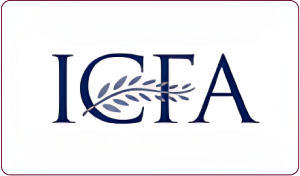Honoring the Departed: A Journey Through Jewish funeral Traditions
Introduction
Funeral rituals hold immense significance in Jewish culture, embodying profound respect for the deceased and providing comfort to grieving loved ones. Rooted in ancient customs, Jewish funeral traditions have evolved over centuries to encompass a blend of religious practices, cultural customs, and community support. This article delves into the essential aspects of Jewish funeral traditions, highlighting their profound meaning and significance.
The Role of Time and Burial
In Judaism, honoring the dead and ensuring a timely burial are paramount. The practice of conducting the funeral as soon as possible after death is deeply ingrained. The principle of "K'vod Ha-Met," which translates to "honoring the deceased," underscores the urgency of providing a respectful and dignified burial.
Jewish law stipulates that burial should take place within 24 hours of death whenever possible. This practice stems from the belief in preserving the dignity of the deceased and preventing any unnecessary delay. However, there are exceptions, such as when the death occurs on the Sabbath or during major Jewish holidays when burial is postponed until the next available time.
Ritual Washing and Tahara
Before burial, a ritual washing called "Tahara" is performed by a group of individuals known as the "Chevra Kadisha" (holy society). The Tahara process involves cleansing and purifying the body, signifying the preparation of the deceased for their journey to the afterlife. The Chevra Kadisha handles this sacred duty with utmost reverence and respect, ensuring that the deceased is treated with the utmost care and humility.
The Simple Wooden Casket
Jewish funeral traditions dictate the use of a simple wooden casket, known as an "Aron" or "Aron Ha-Kodesh." This plain casket symbolizes the equality of all in death, as Jewish tradition believes that all souls are equal before God. The absence of elaborate adornments or precious materials emphasizes the idea that material possessions have no significance in the afterlife.
Shemira: Vigil and Respect
Between the moment of death and the funeral, the deceased is not left alone. A practice called "Shemira" involves placing a vigil next to the body, ensuring it is not abandoned or left desolate. Family members, friends, or members of the Chevra Kadisha take turns to recite psalms and prayers, offering comfort and support to the departed soul.
K'riah: The Act of Tearing One's Garment
At the beginning of the funeral, a symbolic act called "K'riah" is performed, where the closest relatives of the deceased tear their clothing as a tangible expression of grief and mourning. This act represents the rending of one's heart, acknowledging the profound loss experienced by those left behind.
Eulogy and Hesped
The funeral service often includes a eulogy or "Hesped" delivered by a rabbi, a family member, or a close friend. The Hesped provides an opportunity to celebrate the life of the deceased, recount their virtues, and share cherished memories. While the focus is on the positive aspects of the departed's life, it is also customary to emphasize the imperfections, recognizing that all humans are fallible.
Kaddish: A Prayer of Mourning
The Kaddish is a central prayer recited during the mourning period, which lasts for 11 months for a deceased parent and 30 days for other relatives. The mourners recite the Kaddish to honor and remember the departed and to express their faith and trust in God's wisdom and mercy. It is customary for mourners to say Kaddish in a quorum of ten Jewish adults, often in the synagogue during daily prayer services.
The Act of Burial
As the funeral procession moves towards the burial site, it is customary for the mourners to walk together, symbolizing the solidarity and support they offer one another in their time of grief. When the casket is lowered into the grave, family and friends participate in the act of "Tashlich" by placing a handful of soil into the grave. This act serves as a tangible expression of the mitzvah, the commandment to bury the dead. Jewish law prohibits the use of any materials that are not completely degradable in the construction of a burial casket. This is because unnatural materials will prevent the body from returning to the Earth as quickly as possible.
Floral Arrangements
Most traditional funerals do not have flowers, as this is considered an unnecessary and frivolous adornment. However, most Rabbis will not object if a family wishes to place a floral arrangement atop the casket.
Shiva: The Mourning Period
After the funeral, the mourning period called "Shiva" begins, during which close family members gather in the home of the deceased or another designated location. Shiva lasts for seven days, and during this time, mourners refrain from typical daily activities and focus on grieving, prayer, and remembering the departed.
Afterlife
After death, Jews believe the soul of the person known and loved continues to be aware of all that transpires in others’ lives and continues to be the recipient of the love and positive actions carried out on his or her behalf. Death is not viewed as a tragedy, even when it occurs early in life or through unfortunate circumstances, but as a natural process of life. The extensive mourning rituals in Judaism do not reject or protest death, but rather place great value on life in general and the life of each person as an individual.
Lasting Traditions
Jewish funeral traditions are a testament to the rich cultural and religious heritage of the Jewish people. With their emphasis on respect, humility, and community support, these traditions not only honor the deceased but also provide a source of comfort and consolation to those left behind. Through centuries of practice, Jewish funeral customs continue to unite families and communities in times of sorrow, reaffirming the eternal bond between the living and the departed.
Search Obituaries
Immediate Attention
Contact Us
North Dallas Funeral Home
Important Information
-
- When a Death has occurred please call us to make arrangements and to have one of our care team members assist you and your family immediately.
Toll-free: 1-800-300-1655 Local: 972-241-9100
-
- Click here to Download the Cremation Forms
-
- Have the cremation authorization form notarized
-
- Fax the forms back to us at: 972-406-1480

Additional Information
- Frequently Asked Questions
- Facts about Funerals (PDF)
- General Price List (PDF)
- Hospice Groups in DFW Metroplex
- Hospitals in DFW Metroplex
- Flying with Cremated Remains (PDF)
- Social Security Information (PDF)
- Appointment of Agent to Control Disposition of Remains (PDF)
- Area Cemeteries
- VA Burial Benefits
- VA Applications and Request Forms
- VA Organizations
- Texas Prepaid Funeral Contracts
- What to Bring to the Arrangement Conference
- Consent to Publish Form
Additional Information









